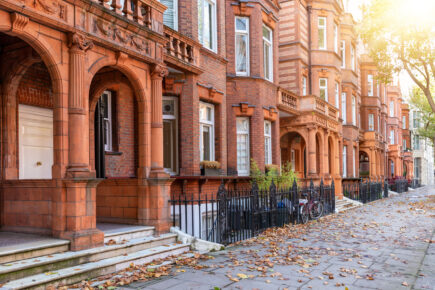Following an investigation by HMRC into Airbnb UK’s tax affairs, the company has agreed to pay an additional £1.8million on top of a £1.1million tax bill it paid on profits for its 2019 financial year. In addition, and as part of the deal struck between Airbnb and HMRC, Airbnb has also passed onto HMRC the detail of incomes earned by its 225,000 landlord App users who rent out a part of their home in the UK. Thousands of Airbnb hosts across the UK are now being warned by HMRC that they face bills for unpaid taxes and fines after failing to declare the income from renting parts of their homes, after reviewing this information against existing records already submitted.
Individuals must pay tax on income generated from rooms let out when that income is over £7,500. Whilst Airbnb’s latest set of accounts show that typical annual earnings per host were just £3,100, which lies within HMRC’s rent a room allowance of £7,500 and therefore a majority of hosts may not be subject to extra scrutiny by HMRC, HMRC is advising anyone who has not paid the correct tax to do so straight away to avoid the risk of being sent an investigation letter.
When it comes to considering renting out your property, or a room within your property, as well as ensuring that you are adhering to the correct tax rules, you also need to consider various other factors that may need to be resolved prior to being in a position to capitalise on this alternative revenue stream. It is often the case, especially if you own a leasehold property, that your lease may prohibit you from subletting your property and putting your property, or a room within your property, on Airbnb (or even through a private tenancy) – and if this is the case you should obtain the superior landlord’s prior written consent. In turn, it may also be a condition of your mortgage that you cannot sublet your property without the mortgagees’ prior consent. Proceeding to sublet your property without first obtaining these necessary consent can lead to some very serious consequences. For example, subletting your property without your mortgagee’s consent could put you in breach of your mortgage, the result of which could be your mortgage provider calling in the full balance of the outstanding mortgage. In turn, if you rent your property without first obtaining the consent of your superior landlord, your landlord could take steps to forfeit your lease.
Looking at this from the other side, these issues sometimes arise without the long leaseholder’s knowledge, or direct wrongdoing, because a short term-tenant or unlawful subtenant conducts activity which breaches the headlease – you may have rented your property with permission, but the tenant may be further subletting the property (privately or on Airbnb) without your consent. Therefore, serious consideration should be given to including provisions in Assured Shorthold and Common Law tenancy agreements prohibiting the property being sublet, and active monitoring should take place in this regard. If a tenant sublets the property without consent, such an action could open you up to claims from the superior landlord.
Whilst consent is not always provided, it is always advisable to check what hurdles need to be overcome before taking the step of renting/subletting your property and the Property and property disputes teams at B P Collins are here to help with assessing these hurdles and what steps need to be taken before renting your property on Airbnb, or privately. In turn, if your property has been sublet without your consent, the property disputes team can assist with securing possession of the property and defending any potential action brought against you for breaches of your lease.
For further information or advice please get in touch with our property disputes team on 01753 889995 or email enquiries@bpcollins.co.uk.
















